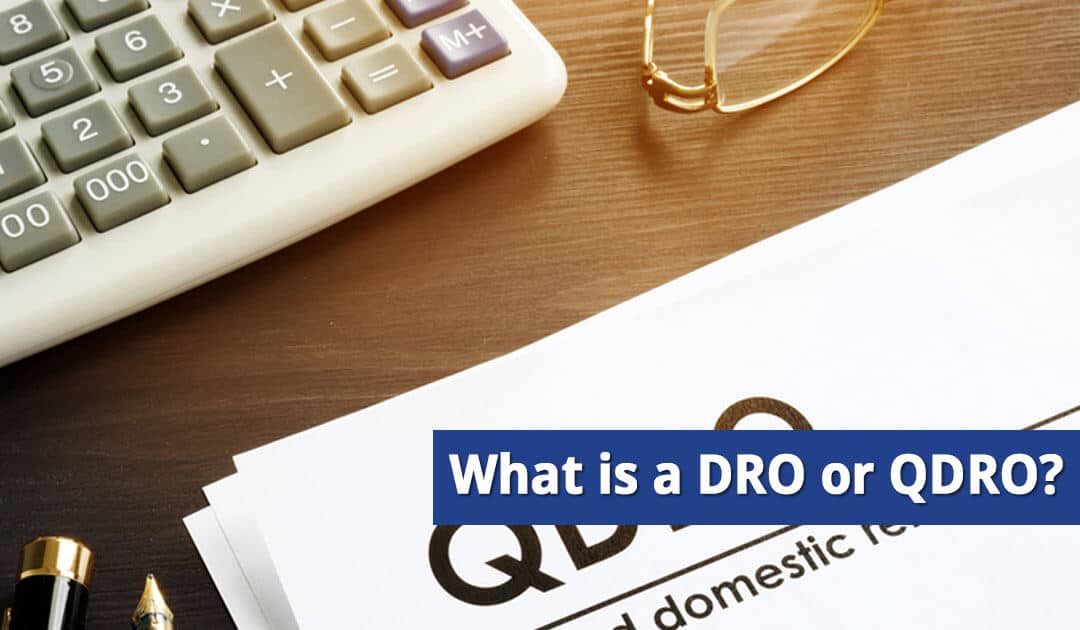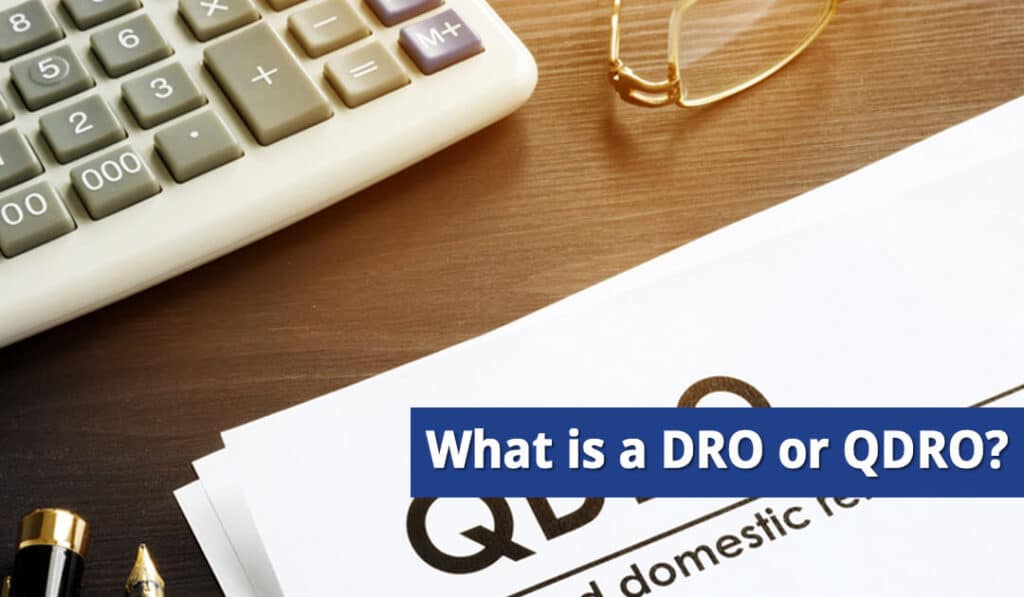What You Need to Know About DROs and QDROs

When you get married in New York, assets that you or your spouse obtain afterward the date of the marriage are considered marital property and are subject to equitable distribution laws. This includes retirement benefits. If your spouse contributed to a retirement plan during the course of your marriage, you may be eligible to receive a portion of those benefits under equitable distribution. To do this, you will need a Domestic Relations Order, a DRO or a Qualified Domestic Relations Order, or QRDO. Here’s what to know about DROs and how an experienced Long Island divorce attorney can help you obtain a fair divorce settlement.
DRO / QRDO Defined
A Domestic Relations Order is a court order that allows an individual to receive a portion of their former spouse’s pension or retirement accounts after divorce. It is completed after a divorce settlement agreement has been issued. This term may be used interchangeably with Qualified Domestic Relations Order. However, these are actually two separate orders. If your divorce settlement affords you payment from your ex’s retirement funds, you will likely need a DRO.
The difference between a DRO and a QDRO is whether or not the retirement plan has been qualified, or if it’s covered by the Employee Retirement Income Security Act (ERISA). A QDRO is for covered or qualified retirement plans, while a DRO is used for plans that aren’t qualified or covered by ERISA.
If you attempt to divide retirement benefits during a divorce without a DRO, the owner of the retirement account is responsible for all taxes on the retirement account, regardless of which spouse the funds go to. With a DRO, each spouse is responsible for the taxes only on their portion of the retirement funds.
Can Other Marital Property Be Exchanged Instead?
In some cases, one or both parties in a divorce may not want to dip into a retirement fund. Other marital property of similar value can be exchanged in lieu of dividing retirement benefits, such as savings accounts or even real property like a vehicle or home. Usually, both spouses need to agree on what property will be exchanged instead, or a judge will need to make this decision for them.
Can a Domestic Relations Order Be Modified?
Unlike a child support, spousal support or alimony court order, a Domestic Relations Order is much more difficult to modify after it has been issued. A court can issue an amendment to the original order if you are eligible, or you can negotiate different terms with your ex-spouse if you’re able to work together amicably. If a DRO is modified, the plan administrator must still review and approve the order. A new DRO will usually supersede the previous one. However, this must be written in the order itself. Some spouses may only be eligible for a new DRO if both the plan administrator and the courts determine that the DRO goes against your divorce settlement.
Contact an Experienced Divorce Attorney for Help with Your Domestic Relations Order (DRO)
Often, former spouses entitled to their partner’s retirement benefits after a divorce are quick to file a DRO after the divorce is finalized and a settlement is issued. This is because in many cases, funds from a DRO become available immediately to the recipient, providing a sizable cash windfall. Spouses who are retirement benefit account holders may be loathe to go through the DRO process and may drag their feet or find excuses to draw out the process for as long as possible.
It’s important to consult with an experienced Long Island divorce attorney with comprehensive knowledge of Domestic Relations Orders in New York. Some family lawyers work with DROs so infrequently that they would have difficulty drafting one for a client, so be sure to confirm that the divorce lawyer you choose has the skills to navigate a case involving retirement benefits and a DRO.
At Hornberger Verbitsky, P.C., we know how challenging going through the process of dissolving your marriage can be. The benefits from a DRO can help you recover from your divorce and begin living life independently. Contact our office today to ask questions about a New York DRO or to schedule your initial consultation by calling 631-923-1910 or filling in the short form on this page.
SCHEDULE YOUR FREE CONSULTATION TODAY
Call 631-923-1910 or fill in the form below
Schedule your complimentary consultation and case evaluation with our experienced attorneys today. When you call, you’ll speak to our friendly Client Services Director, who will be able to answer your general questions and set up your appointment with an attorney who specializes in your unique case.
At your meeting, your attorney will describe the many options available and determine together which is the right solution for you. By the end of this meeting we’ll all understand how we can best help you to move forward.
No Cost or Obligation
There is no cost or obligation for this initial consultation. It is simply an opportunity for us to get to know each other, answer your questions and learn if Hornberger Verbitsky, P.C. is right the right law firm for you. Give us a call at 631-923-1910 or fill in the short form below to schedule your free consultation and case evaluation.
All Fields Are Required
